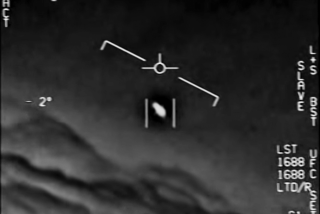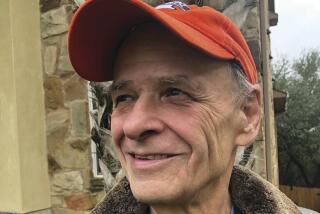Book Review : Crisp Figures in a Fuzzy Conundrum
- Share via
The Stars at Noon by Denis Johnson. (Alfred A. Knopf: $15.95.)
For a haunted house, you need a ghost and you also need a house--a real house, with walls, doors, windows and a roof, or most of a roof.
Denis Johnson’s novel about lost Americans in Central America is full of saintly damnation; as well as heat, sex and corruption. But they remind me of Mrs. Gradgrind in Charles Dickens’ “Hard Times” when asked if she were in pain. There was a pain somewhere in the room, she replied, but she was not certain that she had it.
“The Stars at Noon” suggests in spirit a hazy amalgam of “the quiet American,” “The Honorary Consul,” “A Burnt-Out Case” and one or two other of Graham Greene’s fictional conundrums. It is set in a tropical Greeneland, and deals with the betrayal and a pursuing nemesis. It is a morality tale about the death of the soul in extreme circumstances, with a touch of melodrama gilding it all.
Johnson is the author of “Fiskadoro,” a compelling novel about a destroyed world of the future that is imaginary and prophetically real. The real Nicaragua of his new novel, on the other hand, seems imaginary. It is unfocused and improbable, and so are the two Americans and the Englishman who misadventure through it.
The trouble begins with the protagonist and pretty much goes with her all the way through. She is the novel’s “I” and nameless; but we learn a good deal about her.
A New Yorker, in flight from an unpromising life and an apartment full of cockroaches, she has washed up in Managua as a part-time journalist and part-time prostitute. The combination seems unlikely, and so does the stilted journalist-talk around the bar in the Hotel Intercontinental.
“I” is in considerable trouble when the book opens. The police are shaking her down and threatening to lift her press card. Trouble escalates when she picks up a soft, pale Englishman at the bar. “Making love with him was like passing through a patch of fog,” she tells us; but she falls for him, hard. He is an awkward but saintly geologist. Because he thinks it’s only fair, he has told the Nicaraguans about the presence of oil under Lake Nicaragua. Only Costa Rica had known about it up to that point.
In any event, the Costa Rican secret police--I’m sorry, but that sounds as menacing as the Liechtenstein air force--are after him. So is the CIA, in the person of a terrifyingly naive but murderous young man from the Midwest.
Both the Englishman--he, too, has no name--and “I” are now in danger. After a few days of active but not really convincing cat-and-mouse games around Managua, they attempt to flee the country in an automobile. At the border, the Nicaraguans arrest them and turn them over to the CIA man.
Why they should do this--the Englishmen, after all, had been helping them--passes beyond the unlikely into the incredible. “I,” for reasons that seem more theological than anything else--she’s working on her self-damnation--agrees, in exchange for money, to sign an accusation against her lover. This allows the CIA to have him disposed of over in Costa Rica.
“I” goes to church to meditate upon all this. Later she goes to work in a San Jose brothel. When last seen, she and a colleague are in bed with an American welder who reminds her of her Englishman.
With its story of betrayal and corruption, “The Stars at Noon” seems to suggest the spiritual desolation of the times. Perhaps the improbabilities and lack of focus of the story are meant, literally, to reproduce in us a sense of an American global myopia. But when you fuzz the story to make the reader feel near-sighted, all you have really accomplished is a fuzzy book.
More to Read
The biggest entertainment stories
Get our big stories about Hollywood, film, television, music, arts, culture and more right in your inbox as soon as they publish.
You may occasionally receive promotional content from the Los Angeles Times.










